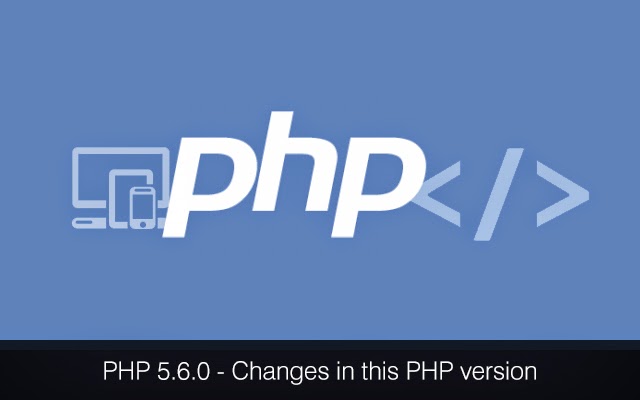Frankly
speaking, it almost certainly goes without much of saying, that in
order to make a particular business website interactive, compelling,
safe, and secure, PHP is the best bet. This is one language that comes
up with a string of specific characteristics, which makes the website in
question, more effective, as well as efficient that makes the
difference in attracting new customers and retaining them for a
considerable period of time. In fact, here is one language that is the
best, the most stable, user-friendly, and cost effective when we speak
about creating as well as designing a website.
PHP,
the server-side language that is used for scripting is particularly
designed to facilitate web development can also be termed as a general
language for programming. Over the years, the language has seen a series
of changes as well as improvements. One of the latest in the series is
PHP 5.6.0 that has come up with a string of value added features along
with a number of backward incompatible changes as well as improvements
from the earlier versions.
This
new PHP version comes up with Constant Scalar expressions along with a
series of variadic functions as well as syntaxes for unpacking argument.
This version also features Exponentiation operator, which is nothing
but a conventional arithmetic operator that returns various float values
if the pair of operarands turns out to be integers, or in any case the
strings that are transformed into integers and the numbers are divisible
evenly. However, in this case it will return an integer value.
Moreover,
the modulus operands are transformed into integers before the
processing starts, mainly through a process of getting rid of the
decimal part. The new version also comes up with the constants and
functional imports with the use of proper keywords. Then there is
phpdbg, which will act as a customary interactive as well as integrated
debugger Speech Application Programming Interface or SAPI.
This
interactive PHP debugger on the other hand is implemented as a typical
SAPI module. phpdbg is capable of having a comprehensive control over
the domain or environment without having any effect whatsoever, on the
performance or functionality of the codes. In fact, phpdbg is an
extremely lightweight, user-friendly, and a powerful platform for
debugging, which is predominantly stepthrough in approach.
In this new version php://input has become reusable, while $HTTP_RAW_POST_DATA has
now deprecated. php://input basically is a typical read-only stream
that is designated to allow the users go through the raw data from a
request body. When it comes to POST requests, php://input should be
preferably used rather than $HTTP_RAW_POST_DATA. This is mainly because
it is not dependant on the special directives of php.ini. PHP 5.6.0 also
comes up with GMP objects that are equipped to support operator loading
mechanism, which in turn helps files that occupy more than 2 GB space
to be accepted. Apart
from all these, the new PHP edition also has incorporated certain
changes that have affected compatibility in a great way.
In the new version, the array keys do not need to be overwritten, when it comes to defining arrays as property of a
definite class, through literally any array. In this version, the
json_decode() is much stricter when it comes to parsing of JSON syntax.
Also, stream wrappers now are capable of verifying by default, the peer
certificates, and the host names while using SSL/TLS. Moreover, the GMP
resources in the new version can be classified as objects and the Mcrypt
functions in the new edition need valid keys as well as IVs.
So
these are the changes that the new avatar of PHP comes up with and
which provides the added benefit to the users, apart from the customary
benefits that the language offers to the programmers and coders. You can get in touch with a php development company who can help you develop web apps that are stable, scalable and secure.
We provide php website development services. If you would like to hire php developerfor your web development needs, please contact Mindfire Solutions.

No comments:
Post a Comment